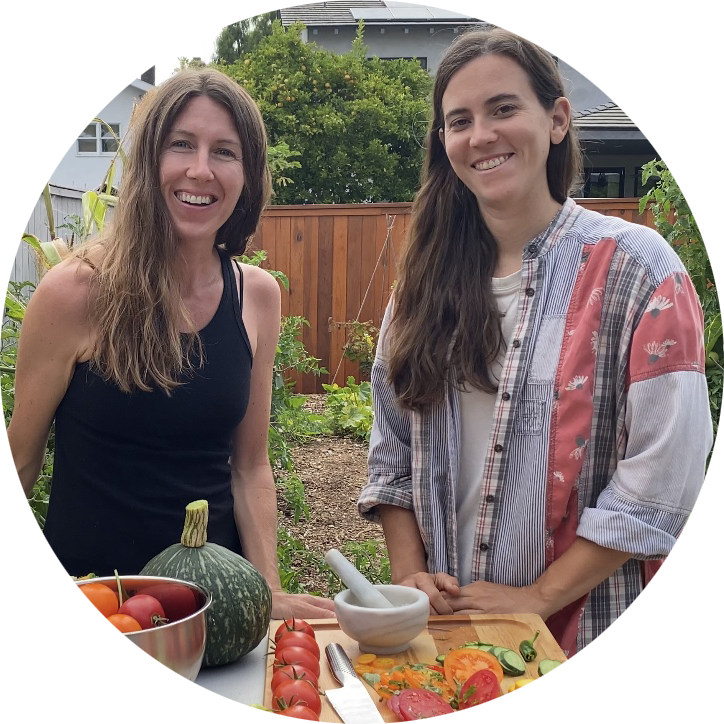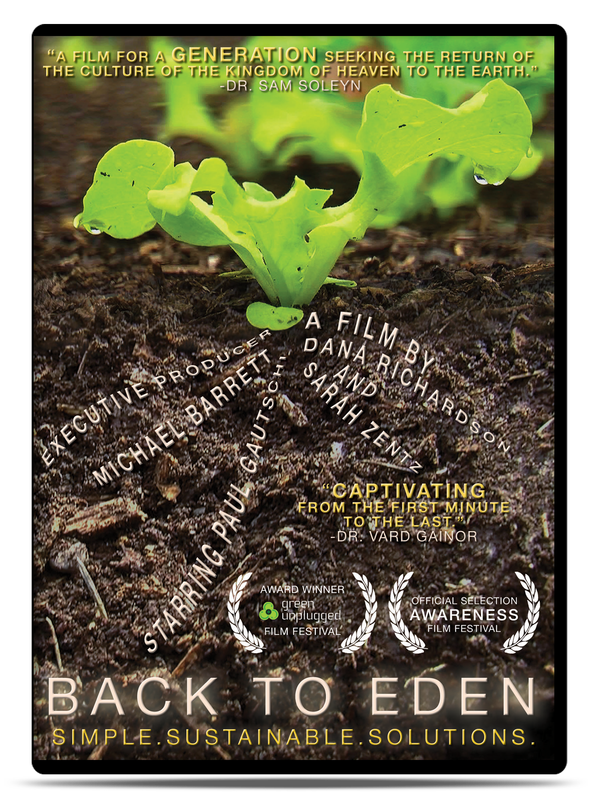|
No matter if you are a beginner gardener or an experienced gardener, you will find that Back to Eden Gardening is easy one of the easiest methods of gardening with the best results. What is Back to Eden Gardening?Back to Eden Gardening is a no-till, regenerative agriculture method and made popular in the documentary Back to Eden featuring Paul Gautschi. This means if you are tilling, using toxic chemicals (chemical herbicides, pesticides, or fertilizers), you are not practicing the Back to Eden Gardening method. Back to Eden Gardens respect that every plant, animal, insect, and microorganism has a beneficial purpose and works to achieve balance and sustainability in the soil. You will see amazing results in the fertility and health of your soil! Healthy soil is the essential key to growing vegetables and fruits that taste amazing and have a greater nutritional value. Unlike conventional gardening and traditional farming methods Back to Eden Gardening requires less and less input over time with a higher and higher yield every year. GARDEN SUPPLIES to Start a Vegetable GardenSoil, Mulch, and Fertilizer1. GET MULCH FOR A VEGETABLE GARDEN Wood chip gardening is the practice of covering your vegetable garden and fruit orchard with wood chip mulch. Wood chips will improve your soil and regenerate the natural life in the soil instead of the use of toxic chemicals that deplete the soil and create soil loss. Back to Eden Gardening uses wood chips that are 90% needles, leaves, and branches that have been chipped from tree trimming waste. It is important to understand that the leaves are a source of nitrogen and the branches are a source of carbon. This ratio creates an ideal mulch gardening material when the wood chips have composted. Paul Gautschi has multiple gardens and orchards in which he utilizes both raw, composted, and screened wood chips. Learn more about the best type of wood chips for your garden by clicking here.
Composted animal manure is a clean, natural fertilizer that can be used in a vegetable garden. Let animal manure compost or you may be planting grass and weed seeds!
If you are going to turn a lawn or weed infested are into garden plot smothering the weed seeds is a must! We recommend that you apply at least 4 sheets of paper that overlap. Then, wet down the newspaper so it adheres to the ground below and doesn't blow away. Garden ToolsWhen installing a no-till vegetable garden, the number one rule is to always avoid disturbing the soil, mimic the design of nature. How do you prepare the soil? You always add layers of compost, and composted animal manure and cover the soil with mulch. The most commonly used mulch in Back to Eden Gardening is wood chips. However, find whatever resource is local to you. For example, straw is also a popular mulch. There is almost always a FREE option when it comes to Back to Eden Gardening. 1. WHEEL BARREL If you are a beginner gardener you may feel overwhelmed at thought of moving an entire wood chip pile but moving wood chips is not as hard as you'd think! Using a wheel barrel makes moving wood chips a low stress work out. If you get the help of a few friends of family members you can move a mountain of wood chips in just a few hours. Or take your time, move it little by little! If you live on a larger property or have access to a Front End Loader Tractor this will be a more practical way to cover a large scale garden or small farm. 2. MULCH SHOVEL & MULCH FORK A mulch shovel and mulch fork make scooping the wood chips easy. Using a regular shovel is very challenging due to the chips and twigs getting stuck or jammed and the scoops not being large enough. 3. GARDEN RAKE A garden rake allows you to spread the wood chips easily on top of your garden without disturbing the soil. It also helps to make rows when planting! 4. GARDEN HOSE & SPRINKLER Back to Eden Gardening reduced garden irrigation needs up to 90% ! That is because the mulch layer retains moisture that would otherwise evaporate and the wood chips retain water they release slowly into the soil even after you stopped watering. However, to get your seeds germinated you should water them every day until they germinate! Make sure to use a hose head sprinkler that allows you adjust the setting to a light mist or shower spray. It is a common mistake to loose seeds in the mulch by planting too deeply or watering too heavily and therefore they won't germinate. OPTIONAL: Add a water filter on to your garden hose to reduce chlorine, VOCs, herbicides, and pesticides. Garden Maintenance1. GARDEN GLOVES It is a great idea to invest in garden gloves to protect your hands while maintaining your garden! 2. PH SOIL TEST KIT
How To START a Vegetable GardenIdeally we recommend starting a Back to Eden Garden in the Fall (September-December), mimicking when nature covers the ground with needles, leaves, and branches. This is beneficial because when you lay down your covering layer of newspaper, compost and wood chips in the fall the organic matter has time to break down with the rain and snow during the winter, giving your soil more time to improve and decomposing the wood chips, leaves, newspaper into composted material.
|
AUTHORSCategories
All
|
BACK TO EDEN GARDENING |
JOIN THE MOVEMENT |
CONTACT US |
© 2022 Back to Eden Film. All rights reserved.






 RSS Feed
RSS Feed